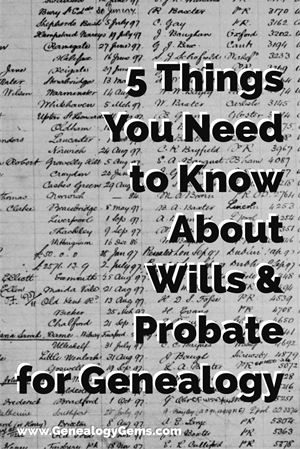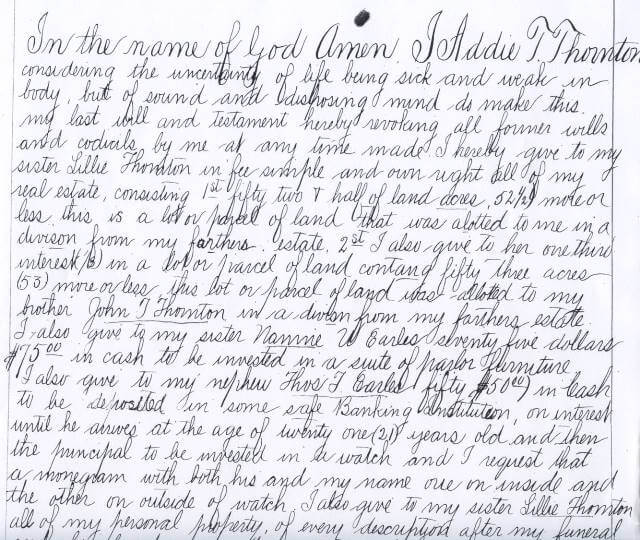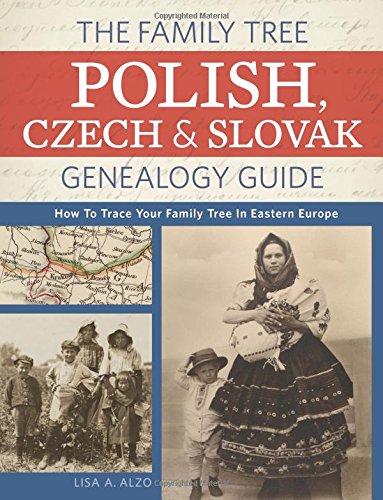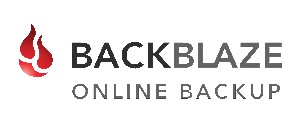Using Wills and Probate Records in Genealogy Research
Using wills and probate records for genealogy can lead to unexpected “inheritances” of your own: clues about relatives’ identities, wealth, personal belongings, and family relationships. Wills can reveal great family stories, too: researcher Margaret Linford entertains her mother with them during trips to the courthouse. Here’s how wills can help your family history—and Margaret’s tips for finding and using them.
Using Wills and Probate Records in Genealogy Research
“Where there’s a will, there’s a way” to find out more about your family’s history.
Wills are legal records created to direct the settlement of a person’s property and other final affairs after his or her death. Probate (or estate) records are created after an individual’s death as part of the legal distribution of the estate and payment of debts. You’ll often find wills as one of many kinds of the documents included in probate records.
Wills and other probate records are valuable research tools, but are frequently neglected as sources of genealogical information. People often focus strictly on birth, marriage, and death records when searching out their family histories. If you rely solely on those records, your research will encounter many brick walls in the early 1800’s.
Probate records and land records were often the only official documents left behind to tell the stories of ancestors who lived prior to the legal requirement for the registry of births and deaths.
Wills of slaveholders can also be valuable tools in conducting African-American genealogical research. Before the Civil War, enslaved people were listed in wills because they were valuable property of slaveholders.
For instance, in the 1863 Smyth County property tax records, it is noted that Abijah Thomas owned 56 slaves, which were valued at $53,800. Some were given their freedom within wills, while others were transferred to other members of the family or sold. For instance, one of the first wills recorded in Smyth County is that of Hugh Cole.
Within his will, he says the following: “I bequeath to my beloved wife Martha Cole a negro girl named Amanda which she is to hold during her natural life.” The mention of an enslaved person in a will—along with any personal description of him or her—may be the only surviving document to mention that person by name.
Within another Smyth County will, recorded on February 20, 1835, a woman named Elizabeth Blessing left the following directive: “I will and desire that my negro woman Betty be free at my decease, and must see to her own support during her life, as I shall not make any provision for her out of any part of my estate.”
Information Found in Wills Varies
You can find just about anything in a will!
One organ, one compass, chain and plotting instruments, two chests, one hat rack, one music rack, one old United States map. These are some of the items found in the appraisement bill of the personal property belonging to the estate of Abijah Thomas, who lived in the well-known Octagon House in Marion, Virginia.
Here is a photo of that home, now in a dilapidated state, from a Wikipedia file image (click image for attribution.)
Also included in his personal property is a church bell. The story behind the bell is intriguing and illustrates the significance of the probate process.
Abijah Thomas utilized the bell at his foundry works in Marion, Virginia, to indicate shift changes. For decades, the oral history surrounding the bell indicated that he had donated it to the Wytheville Presbyterian Church before he died. The court documents reveal a different story.

Court document regarding the church bell
Since Abijah died intestate, the court appointed three men to appraise his personal property. During this process, the bell was valued at $75. It was sold on September 1, 1877, to the Presbyterian Church in the town of Wytheville, Virginia, as shown in the above list of items sold from his estate.
This document dispels the family myth surrounding the church bell. This is just one of many examples of the types of stories you find in probate records in courthouses all across the United States.
Genealogical Information May be Found in a Will or Probate Records
Wills and probate records can pass along unexpected genealogical wealth to you. You may find the following information in them: date of death (or approximate date of death), name of spouse, children, parents, siblings and their place of residence, adoption or guardianship of minor children, ancestor’s previous residence, occupation, land ownership, and household items.
Probate records also contain such interesting stories that they can even be read for entertainment!
Whenever I go on a research trip, I usually drag some poor, unsuspecting soul along with me. That person is usually my Mom. While she enjoys the scenery on our drive to different courthouses, she rarely enjoys the time spent at the courthouse.
Some of the research I do requires me to stay at the courthouse for several hours. That has posed a problem in the past since I haven’t known how to keep Mom occupied. But I have found the perfect solution. When we arrive at the courthouse, I find an old will book and let her start reading.
My mom enjoys reading the stories in these old—and sometimes tattered—books. One of her favorite stories came from a will in Henry County, Virginia. It is the will of Addie T. Thornton and reads as follows:
“I also give to my nephew Thomas T. Earles, fifty ($50) in cash to be deposited in some safe Banking Institution, on interest until he arrives at the age of twenty-one (21) years old and then the principal to be invested in a watch and I request that a monogram with both his and my name, one on inside and the other on outside of watch.”
Obviously, Addie Thornton cared deeply for her nephew, Thomas, and wanted to make sure he remembered her for the rest of his life.
Here’s part of Addie’s will, followed by a closeup image of the lines about the watch:
Stories like these are so much more meaningful than just a date of birth, marriage or death. Wills can help us know who these people were, how they lived and what was important to them during their sojourn here on earth. We can learn of their struggles and their successes. We can tell what their lives were like by reading through the lists of household items included in the inventories that are recorded.
And with stories like Addie’s bequest of the watch, we can also learn about ancestors’ personalities and how they expressed (or occasionally withheld) love for others through the final disposition of their belongings.
How a Will is Created
Before beginning probate record research, it is important to be familiar with the probate process and legal terminology associated with these records. It is estimated that, prior to 1900, about half of the population either left a will or was mentioned in one. Those who died having left a will are said to have died “testate.” Those who died without leaving a valid will died “intestate.”
A typical, legally-recognized will contains certain critical elements. It should be in written form and it must have signatures of the person leaving the will (“testator”) and witnesses, who attest to the validity of the document. A codicil is a document created by the testator to amend the will.
Once the testator dies, the will is presented to the judicial authority by a family member or executor/executrix (person appointed by the testator to see that his/her wishes are carried out), accompanied by a written application or petition for probate.
These petitions include names and addresses of the closest living relatives. The court then admits the will to probate and sets a hearing, providing an opportunity for interested parties to contest the will. The will is then recorded and the executor is given the authority to settle the estate. During this process, an inventory of the estate is made.
Some wills contain detailed information, regarding the testator’s final wishes. At times, these requests will shed light on relationships that might not otherwise be discovered. This was the case for a will on file at my local courthouse. Due to the nature of the requests made by the testator, I have changed the last name of the family to Smith. This wife was, obviously, upset with her husband and the circumstances of their marriage, providing clear details of her grievances for future generations.
“Since my husband has never made me a part of his family and has completely cut me out of ever living in Chihowie, Virginia [the husband’s hometown], or never provided me with a home or paid any of my bills and has broken all marriage contracts that we agreed to—I hereby decree that I be buried in Round Hill Cemetery at Marion, Virginia, where I own a lot—that my body or anything I own or possess will never be taken into Chilhowie or the Smith household.
My husband has never taken me into his own home, and furthermore stated, backed up by his nephew and his wife, whom he turned everything over to shortly after our marriage—that I would never own or live on a foot of the Smith ground, even though I have tried to build or buy or remodel a home in Chilhowie, Virginia, at my own expense.
“I give all books and material things pertaining to books to the Smyth County Library, Marion, Virginia, as I am sure that my family would not want anything to fall into the hands of anyone who has mistreated me.
“My husband has kept our marriage strictly on a time clock basis since his nephew and his wife moved back to Smyth County, and under their influence he comes at 6:30 or 7:00 p.m. (whichever is convenient to them) or later, and leaves promptly in the morning by 8:00 or 8:30 a.m., never calling during the day or show[ing] any sign of caring. He changed completely after they returned to Chilhowie to break up the marriage. Therefore, if I am still his wife, or otherwise, see that my wishes are carried out and that my remains and possessions remain in Marion.”
Where to Find Wills and Probate Records
The best place to search for a will is at the courthouse where your ancestor lived, if you can reasonably go there yourself.
Since the probate process is a function of state governments, the laws governing the maintenance of these records and their location will vary by state and should be researched before making a trip to the courthouse.
For example, in Virginia, probate records are maintained within the Circuit Courts and independent cities. In Massachusetts, probate records are found in county Probate Courts.
A useful resource for figuring out how U.S. probate records are organized state-by-state is free on the Ancestry.com wiki: Red Book: American State, County and Town Sources. Scroll down to click on the name of the state in question. Then go to the right side and click on the probate records link for that state to read about these records.
Once you have determined where the wills for your state/county are housed, the next step in the research process is to locate the Index for Wills. Even–perhaps especially–if you are unsure of the date of death for one of your ancestors, you may want to look through the index of wills (an example is shown here). Even when no specific death record exists, you may be surprised to find probate records that reveal the date of death, a list of heirs and more.
There will, most likely, be several index books, organized by year spans. These books serve as a compass, pointing you to any available probate records that may include your ancestors. The index is divided by devisor (the person making the will) and devisee (any person who is named in the will, as the recipient of property).
The research process will be incomplete if you do not conduct a search for your ancestors among the list of devisees. Even if you fail to find their names among the devisors, they could have inherited property from someone else.
Probate records include more than just the will of an individual. You may find letters of administration, lists of heirs, inventories, bills of appraisement, guardianships and other documents related to the settlement of an estate. In some counties, all these documents are found in the same collection. Other counties maintain these records in separate collections. It is important to understand the manner in which probate records are organized for your particular county.
The probate research process should not be rushed. Valuable records may be overlooked when time dictates the quality of your research. For this reason, it is important that you set aside ample time to comb through the probate records. If you find yourself confused about abbreviations or the location of records within the courthouse, there is usually someone in the records vault who would be happy to assist you. Never be afraid (or embarrassed) to ask for help.
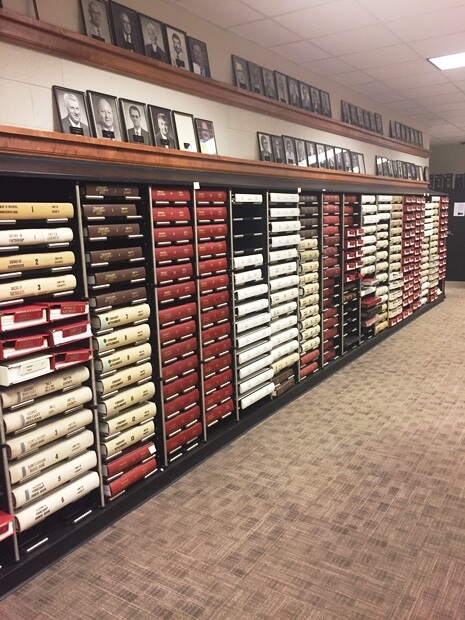
Fortunately for many of us who can’t easily get to every ancestor’s courthouse, there are some wills available online on genealogy websites, including two of the genealogy giants, FamilySearch and Ancestry.com.
For example:
- Subscription website Ancestry.com has made it a priority to curate an enormous collection of wills and probate records from all 50 states. At last count, this collection has more than 170 million records—and they keep adding to it.
- The free FamilySearch.org hosts millions of probate records from the U.S. and around the world (click here to browse their probate and court record collections). Many of these collections are marked “browse-only,” which means they are not yet searchable by name online. You just have to page through them. Click here for instructions on reading browse-only records on the site (it’s not that difficult—and did I mention they’re free?).
Additionally, libraries or genealogical societies in your ancestor’s hometown or county may have books with abstracts from local wills or other resources related to local probate record research.
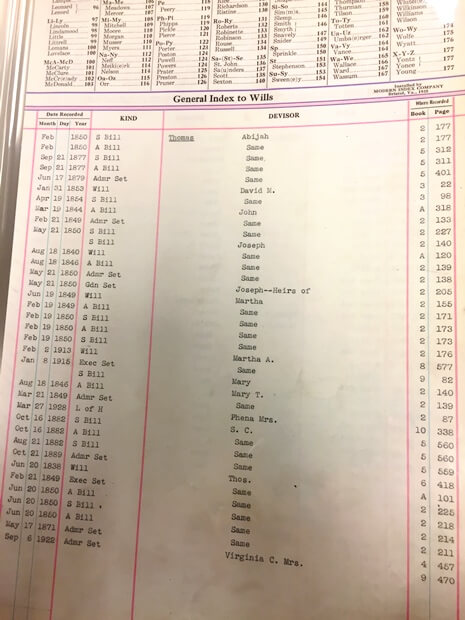
General Index to Wills
Well Worth the Effort
Finding the will of one of your ancestors is an amazing experience. Walking into the vault of a courthouse sometimes feels like walking into a time machine. As you read through the pages that tell of people who lived so long ago, you feel like for even just a small moment that you have gone back in time. You are sitting with them and hearing their stories whispered through the aging and brittle pages that have been left behind. They are all there just waiting to tell their stories. So take the opportunity to go to the courthouse and “meet” your ancestors through the one of the last—and perhaps one of the most revealing—documents they may ever have written: their wills.
Researching Wills and Probate Records: Your Next Steps
Take your genealogy research to the next level by planning a trip to a courthouse to retrieve records like wills and probate records. These articles and podcast episodes will help you get ready:
- Why you should be researching court records
- Success story: Genealogy research trip produced amazing family history find
- Premium Podcast Episode 128: Courthouse research tips (for Genealogy Gems Premium subscribers)
Disclosure: This article contains affiliate links and Genealogy Gems will be compensated if you make a purchase after clicking on these links (at no additional cost to you). Thank you for supporting Genealogy Gems!

Margaret Linford is a professional genealogist who specializes in the Mid-South Region of United States research and has logged over 20,000 research hours. Born and raised in Virginia, she has enjoyed traveling the world, and now lives in her childhood hometown with her husband and children. She enjoys teaching her children about heritage, taking them along on research trips and serving as President of the Smyth County Genealogical Society.
New Digital Archives for Genealogy: Canada, Oregon, Virginia
New digital archives for genealogy host Canadian photos and history magazines, Oregon historical records, and Virginia newspapers. Also this week: Google Maps additions in Canada; Norfolk, England records; England and Wales criminal records; Scottish Presbyterian church records and Glasgow newspapers; and criminal records from England/Wales.
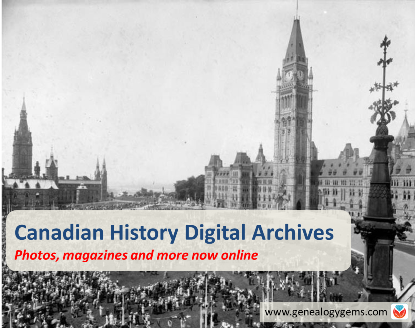
Canada: History Magazines in Digital Archive
Canada’s History Society has launched a new, mobile-responsive digital archive. Canada’s History launches with the entire run of a unique magazine: The Beaver, which explored the history of the Far North from fur-trade colonial days to modern times. “In addition to The Beaver, the archive will feature issues of Canada’s History magazine as well as Kayak: Canada’s History Magazine for Kids,” says a news article. The project was partnered by the Hudson’s Bay Company History Foundation. Its website is also worth exploring if your family history reaches into that part of the world.
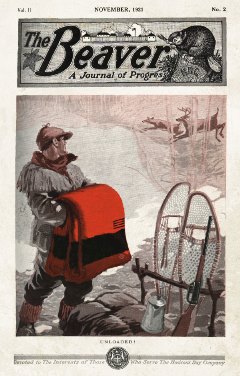
Image courtesy Canada’s History Society.
Canada: Photo Archive
More than 100,000 digitized photos represent the beginning of a new Canada photo archive available to subscribers of The Globe and Mail, which is celebrating its 173rd birthday this year along with the country’s 150th. According to a news article, photo topics “range from a 1901 picture of the Forester’s Arch being erected on Bay and Richmond streets for a royal visit to a Canadian astronomical discovery in the late 1990s. You can search the archive by date or Globe photographer, and there are special collections that cover different aspects of Canadian life.”
England: Norfolk Records
Subscription website Findmypast.com has added to these collections of genealogical records on Norfolk, England (see a Findmypast special offer at the bottom of this post):
- Norfolk Marriage Bonds, 1557-1915. “Browse 444 volumes of marriage bonds from four ecclesiastical courts: the Archdeaconry of Norfolk Court, the Archdeaconry of Norwich Court, the Dean & Chapter of Norwich, and the Diocese of Norwich Consistory Court.”
- Norfolk Non-Conformist Church Records, 1613-1901. Browse “11 registers covering various denominations including Methodist, Quaker, and Baptist in the parishes of Attleborough, Aylsham, Kenninghall, Norwich, Tasburgh, Walsingham, and Wymondham.”
- Norfolk Poor Law Union Records, 1796-1900. Browse “55 volumes covering 20 unions across Norfolk to discover whether your ancestors fell on hard times. Explore 10 different types of records, ranging from baptism and report books to relief lists and court orders.”
England and Wales: Criminal Records
Findmypast.com has finished adding a final installment to its Crimes, Prison and Punishment Collection. About 68,000 records were added that may help you “uncover ordinary and extraordinary stories of criminals, victims and law enforcers from Georgian highway robbers to Victorian murderers, Edwardian thieves, and a whole host of colorful characters in between!”
Scotland: Glasgow Newspapers
The British Newspaper Archive has added the following to its collection of Glasgow newspapers:
- Glasgow Evening Citizen: added the years 1879-1892, so the current collection now tops 20,000 pages and covers 1866-1890.
- Glasgow Evening Post: added the years 1881-1890. The total collection of over 14,000 pages and covers 1867-1890.
Scotland: Presbyterian Church Records
More than 36,000 Presbyterian church records, covering 1744 to 1855, have been added to ScotlandsPeople, a website maintained by the National Records of Scotland. “The 20,255 births and baptisms (1744–1855), 10,368 marriages and proclamations (1729–1855) and 5,422 death and burial records (1783–1855) may be especially helpful for anyone searching for a person who was born or baptized, married, or died before the introduction of statutory registration in 1855,” states an article on the site.
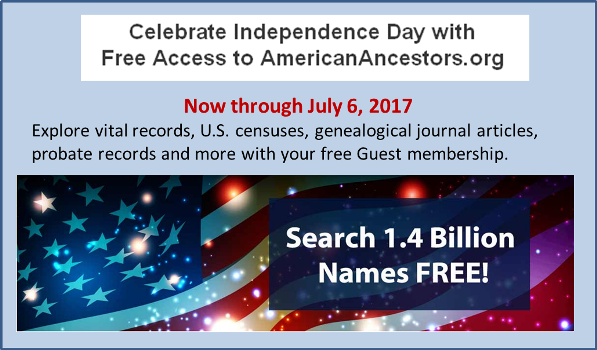 United States: Oregon Digital Archive
United States: Oregon Digital Archive
The Oregon Historical Society has just launched OHS Digital Collections, a new resource for researching Oregonians on your family tree. “This new website allows online public access to a rich variety of materials from the OHS Research Library, including items from the manuscript, photograph, film and oral history collections,” states a Hillsboro Tribune article. More content is planned for this new site, so check back periodically.
United States: Virginia Newspapers
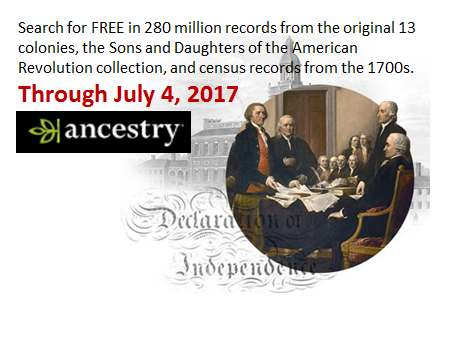 The Virginia Newspaper Project is putting the Library of Virginia’s collection of Civilian Conservation Corps (CCC) newspapers on Virginia Chronicle, a free digital newspaper archive with nearly a million pages. According to an announcement, “The camp newspapers in the LVA’s collection, published from 1934 to 1941 by the young men of the CCC, were mostly distributed in camps throughout the Commonwealth, though a handful are from locales outside Virginia….[The camp newspapers] offer a vivid picture of camp life during the Depression…[and] are also packed with the names of people who were active in the CCC–you might find a mention of one of your relatives among the pages. Click here to learn more about the CCC and the newspapers they produced.”
The Virginia Newspaper Project is putting the Library of Virginia’s collection of Civilian Conservation Corps (CCC) newspapers on Virginia Chronicle, a free digital newspaper archive with nearly a million pages. According to an announcement, “The camp newspapers in the LVA’s collection, published from 1934 to 1941 by the young men of the CCC, were mostly distributed in camps throughout the Commonwealth, though a handful are from locales outside Virginia….[The camp newspapers] offer a vivid picture of camp life during the Depression…[and] are also packed with the names of people who were active in the CCC–you might find a mention of one of your relatives among the pages. Click here to learn more about the CCC and the newspapers they produced.”
 Special offer: Through July 2, 2017, get your first month of Findmypast.com World Subscription for just $1.00! In addition to unparalleled record content for England, Scotland, Ireland and Wales, Findmypast has added tons of great content to its US and Canada collections.
Special offer: Through July 2, 2017, get your first month of Findmypast.com World Subscription for just $1.00! In addition to unparalleled record content for England, Scotland, Ireland and Wales, Findmypast has added tons of great content to its US and Canada collections.
- US/Canada Users: CLICK HERE
- UK Users: CLICK HERE
- Australia Users: CLICK HERE
Bonus! Get an exclusive subscriber-only webinar, 20 Unmissable Resources for Tracing Your British and Irish Ancestors, when you sign up!
Full disclosure: This post contains affiliate links and Genealogy Gems will be compensated if you make a purchase after clicking on these links. Thank you for supporting Genealogy Gems!
Irish Historical Photographs in New and Updated Genealogical Records
We are bringing you Irish historical photographs from Dublin this month in celebration of Irish heritage. Search these amazing photos of your ancestral homeland. Also this week, directories from Scotland, church records of the United Kingdom, and censuses for Canada and New York State.
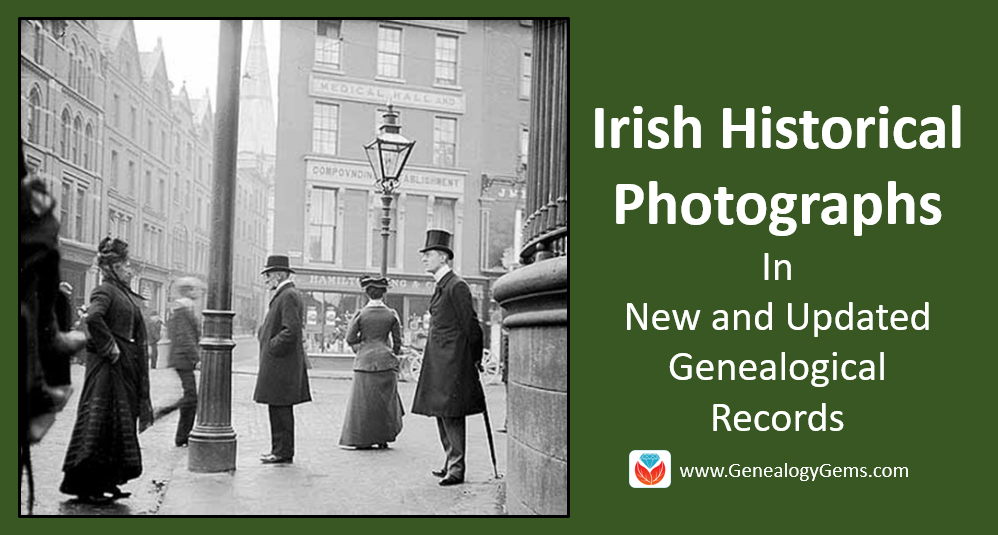
Ireland – Dublin – Irish Historical Photographs
These Irish historical photographs includes pictures of old documents and objects, too, with the oldest document dated to 1757!
Take a look at the entire archive, here.
More on Beginning Irish Genealogy
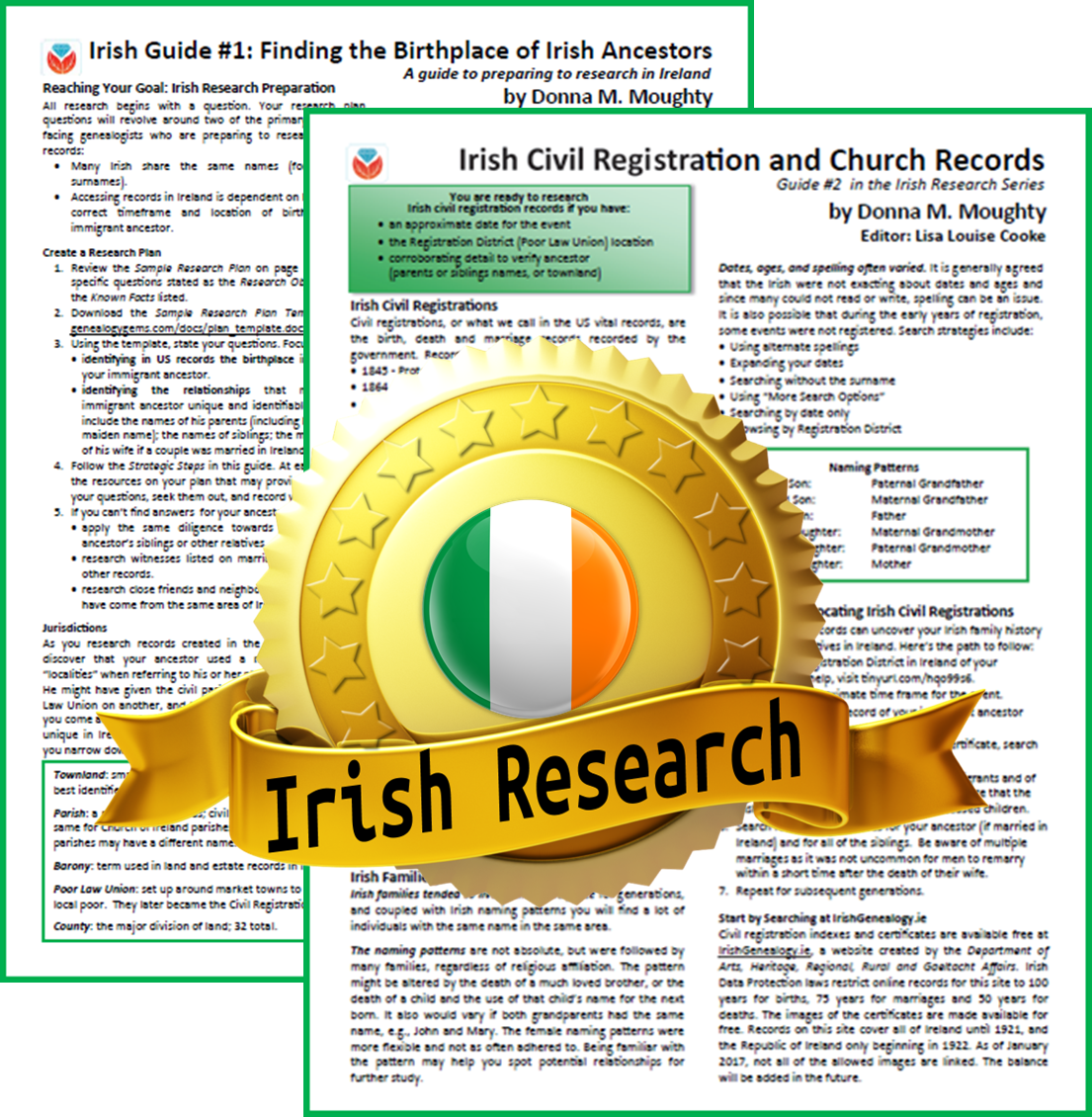 You’ll love these two quick-guides by Donna Moughty on Irish genealogy. Guide #1 titled Preparing for Success in Irish Records Research will help you determine a birth place, differentiate between persons with the same name, and walk you through identifying helpful US records.
You’ll love these two quick-guides by Donna Moughty on Irish genealogy. Guide #1 titled Preparing for Success in Irish Records Research will help you determine a birth place, differentiate between persons with the same name, and walk you through identifying helpful US records.
Guide #2 titled Irish Civil Registration and Church Records, will guide you through locating Protestant church records, civil registrations, and more. It will also walk you step-by-step through using the new online Civil Registration records.
And now, purchase these quick-guides as a bundle
Scotland – Post Office Directories
Scotland Post Office Directories contains over 382,000 records and allows you to explore thousands of pages of directories to learn more about the life and work of your Scottish ancestors. This Findmypast collection focuses on a particular town or district although a number of national postal directories are also included. The majority comprise a description of the place along with lists of people by occupation. For example, you will find lists of magistrates, councilors, sheriffs, police officers, and merchants.
The records are do not contain transcripts, but do include a digital image. The detail you will find on each page will depend on the type and date of the directory.
In conjunction with these post office directories, there are some that are browse-image only. They have not been indexed at this time. These 598 volumes of the Scotland Post Office Directories Image Browse are an excellent source for family history and those who need to trace their ancestors on a yearly basis.
Canada – 1842 Census
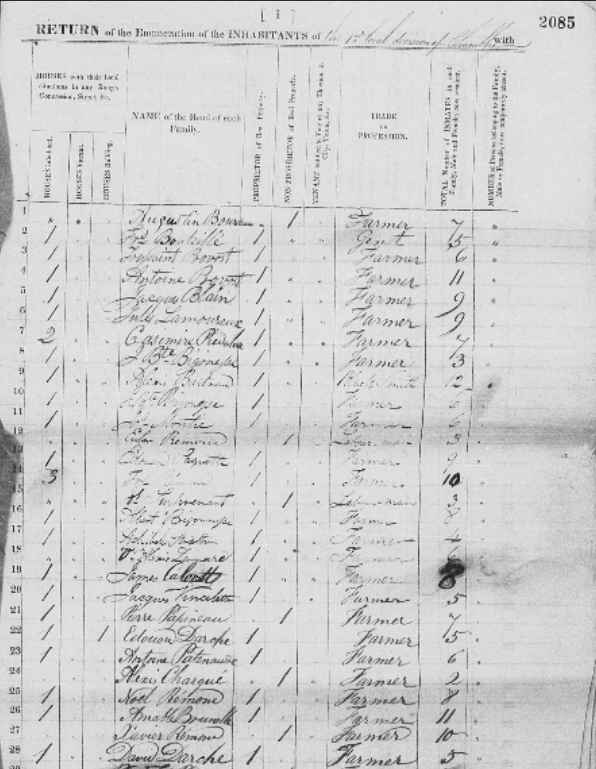
The Lower Canada Census 1842 at Findmypast contains over 46,000 records. The Province of Lower Canada was a British colony on the lower Saint Lawrence River and the shores of the Gulf of Saint Lawrence between 1791 and 1841. It covered the southern portion of the modern-day Province of Quebec and the Labrador region of the Province of Newfoundland and Labrador.
Each search result will include an image of the original document and a transcript. The original returns were printed in French and English and transcripts may include occupation, language, residence, and the number of inhabitants at their dwelling. Images can provide detailed information about the local area such as number of inhabited and uninhabited buildings, the number of barley mills, tanneries, distilleries, the price of wheat since last harvest, and the price of agricultural labor per day.
United Kingdom – London – Russian Orthodox Church Records
Findmypast has added records to their collection titled Britain, Russian Orthodox Church in London. Over 13,000 records taken from volumes of birth, marriage, and death records from the Russian Orthodox Church in London in exist is this collection. The records further include correspondences, congregational records, and church documents. The majority of the volumes are written in Russian although a limited number of English-language records are available.
The Russian Orthodox Church records are available as a browse set only at this time. You will need to search the records by the document description such as Births, marriages, deaths, converts, and passports, 1888-1919 or Donations to St Petersburg Guardianship for Poor Clergymen, 1863. Then, search within the digitized volume to find your ancestor.
You will find numerous correspondences with other church leaders in London, America, Russia, and Japan, as well as documents related to religious doctrine. The facts found in each volume will depend on the type of record you are viewing. Birth, marriage, and death records will typically include the individual’s name, event date, and place, while birth and marriage records may also include the names of the individual’s parents.
United Kingdom – War Records
New records have been added to the Findmypast collection of Anglo-Boer War Records 1899-1902. This unique database of more than 470 sources may reveal the unit your ancestor served with and any medals, honors, or awards they won. The register also contains a completely revised casualty list of 59,000 casualty records.
Each record contains a transcript and may include the following information:
- Name
- Service number and rank,
- Unit & regiment
- Medals, honors or awards received
- Memorials relating to death if applicable
United Kingdom – England – Births and Christenings
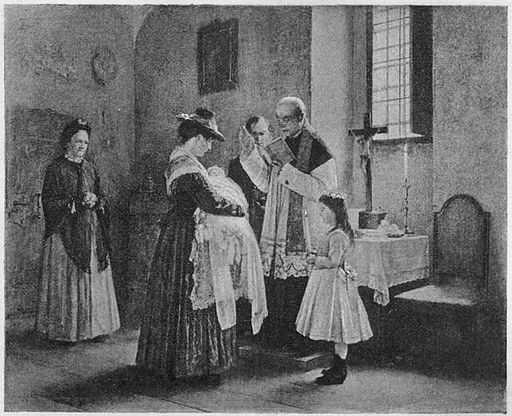
By Anton Laupheimer [Public domain], via Wikimedia Commons
United States – New York – State Census
FamilySearch has added to the New York State Census of 1865 this week. State censuses are particularly helpful to researchers because they fill in the gap between federal censuses. Unfortunately, the following counties are missing:
- Allegany
- Clinton
- Franklin
- Genesee
- Hamilton
- New York
- Putnam
- Queens
- Seneca
- St Lawrence
- Sullivan
- Westchester
- Wyoming
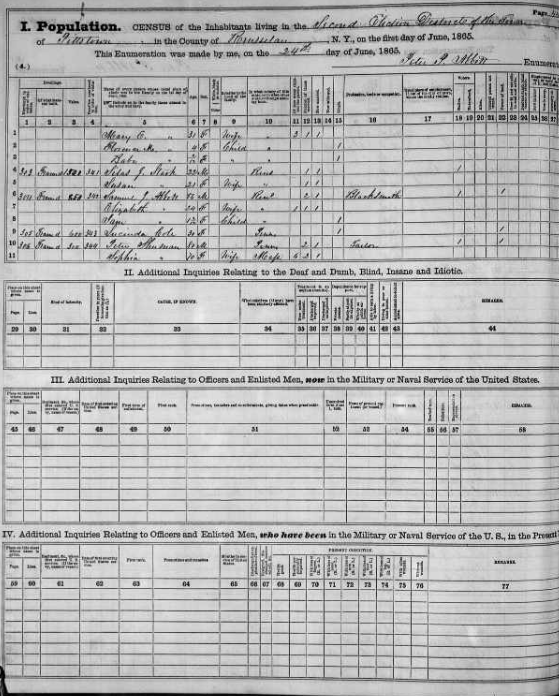 The population schedule includes the name, age, birthplace, and occupation of each household member as most censuses do.
The population schedule includes the name, age, birthplace, and occupation of each household member as most censuses do.
However, this census also includes two military schedules with information of officers and enlisted men currently in the military and men who had served in the military. This census contains information on when and where the individual first entered the military, rank, how long they were in the service, their present health, as well as several other items.
Additionally, the census contains tables on marriages and deaths occurring during the year ending June 1, 1865. These tables contain typical marriage and death information, but can be a helpful resource for those who have been unable to find these records in traditional locations.
Lastly, a second table entitled deaths of officers and enlisted men contains deaths of individuals which had occurred while in the military or naval service of the United States, or from wounds or disease acquired in said service since April, 1861, reported by the families to which the deceased belonged when at home. It includes the name of the deceased, age at death, if married or single, if a citizen, several items relating to military information, date of death, place of death, manner of death, survivors of the deceased, place of burial and any remarks.
Episode 195
The Genealogy Gems Podcast
Episode 195
with Lisa Louise Cooke
In this episode, I’m celebrating the 100th episode of another podcast I host: the Family Tree Magazine podcast. So I’ll flashback to one of my favorite interviews from that show, an inspiring get-in-shape conversation for your research skills: how you can strengthen your research muscles and tone those technology skills to find and share your family history.
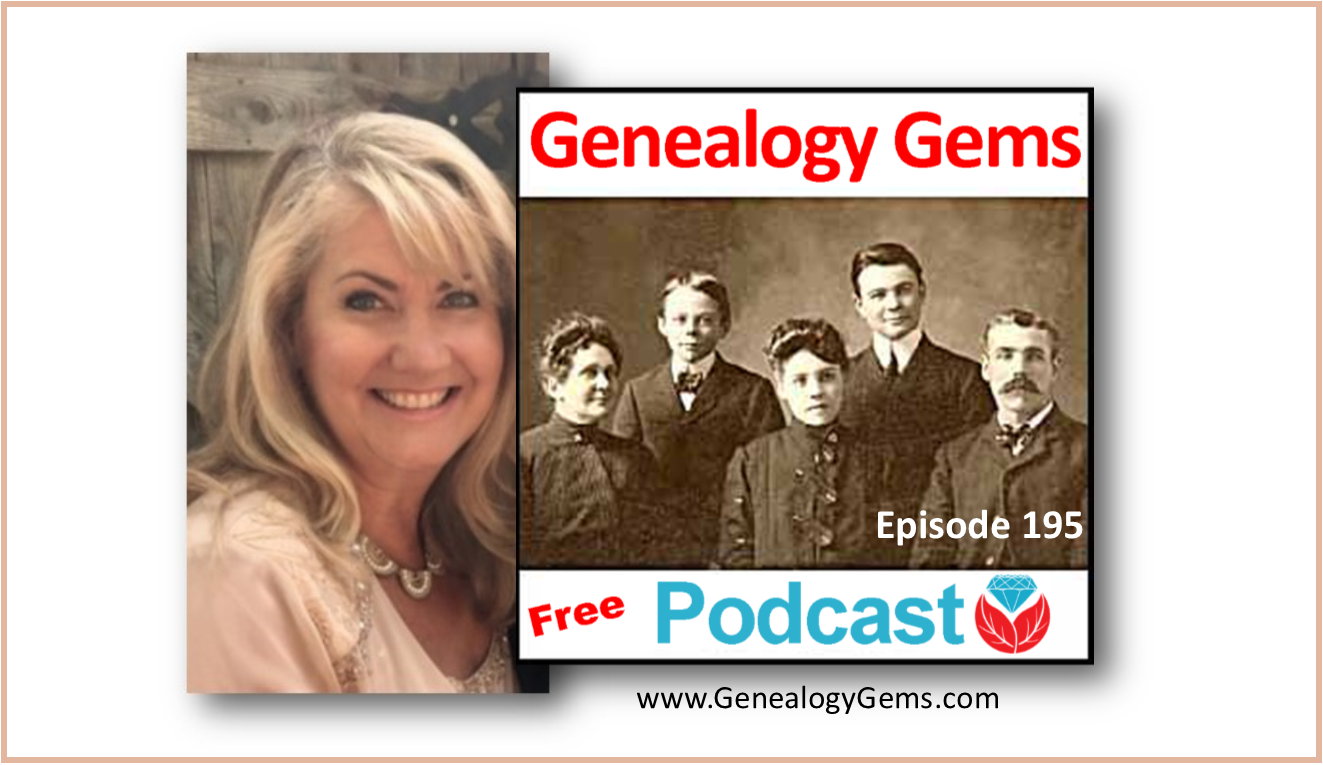
Genealogy Gems Podcast Episode 195
Listen now – click the player below
More episode highlights:
- News on Chronicling America and Scotland’s People;
- Comments from guest expert Lisa Alzo on millions of Czech records that have recently come online;
- A YouTube-for-genealogy success story from a woman I met at a conference;
- An excerpt from the Genealogy Gems Book Club interview with Chris Cleave, author of Everyone Brave is Forgiven;
- Diahan Southard shares a DNA gem: the free website GEDmatch, which you might be ready for if you’ve done some DNA testing.
NEWS: GENEALOGY WEBSITE UPDATES
- Scotland’s People
- Findmypast.com: Scottish records
- Chronicling America
- Chronicling America: New state partners join the program
- Chronicling America: Expanding its current scope
- MyHeritage Adds DNA Matching
NEW RECORDS ONLINE: FREE CZECH RECORDS AT FAMILYSEARCH.ORG
- Czech Republic Church Records 1552-1963
- Czech Republic Land Records 1450-1889
- Czech Republic School Registers 1799-1953
On browse-only records:
Though not fully indexed, the new Czech browse-only records number over 4 million. Click here learn how to use browse-only collections on FamilySearch.org.
Lisa Alzo, Eastern European genealogy expert and author of the new book The Family Tree Polish, Czech and Slovak Genealogy Guide comments on the significance of these records coming online:
“These records are a real boon for Czech researchers because at one time the only to get records such as these was to write to an archive and taking a chance on getting a response or spending a lot of money to hire someone to find the records or to travel there yourself to do research in the archives.
The church records contain Images and some indexes of baptisms/births, marriages, and deaths that occurred in the Roman Catholic, Evangelical Lutheran, and Reformed Church parishes, as well as entries in those registers for Jews.
Land transactions containing significant genealogical detail for a time period that predates parish registers. The collection includes records from regional archives in Opava and Tebo and from the district archive in Trutnov.
School registers contain the full name for a child, birth date, place of birth, country, religion and father’s full name, and place of residence.
While researchers should keep in mind that not everything is yet online, and FamilySearch will likely add to its collection, having these records from FS is an amazing resource for anyone whose ancestors may have come from these areas. And hopefully, there are more records to come!”
GENEALOGY GEMS NEWS
Story of My Life by Sunny Morton, life story-writing journal available as a print workbook and as a writeable pdf e-book
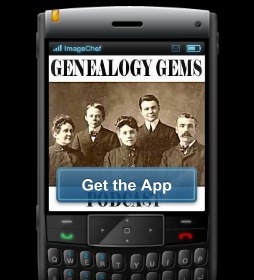 Genealogy Gems app users: For those of you who listen to this show through the Genealogy Gems app, your bonus handout is a PDF document with step-by-step instructions and helpful screenshots for Google image search on mobile devices. The Genealogy Gems app is FREE in Google Play and is only $2.99 for Windows, iPhone and iPad users
Genealogy Gems app users: For those of you who listen to this show through the Genealogy Gems app, your bonus handout is a PDF document with step-by-step instructions and helpful screenshots for Google image search on mobile devices. The Genealogy Gems app is FREE in Google Play and is only $2.99 for Windows, iPhone and iPad users
Lisa Louise Cooke uses and recommends RootsMagic family history software. From within RootsMagic, you can search historical records on FamilySearch.org, Findmypast.com and MyHeritage.com. In the works: RootsMagic will be fully integrated with Ancestry.com, too: you’ll be able to sync your RootsMagic trees with your Ancestry.com trees and search records on the site.
Keep your family history research, photos, tree software files, videos and all other computer files safely backed up with Backblaze, the official cloud-based computer backup system for Lisa Louise Cooke’s Genealogy Gems. Learn more at http://www.backblaze.com/Lisa.
Review your search results especially those that pop up in the Images category.
MAILBOX: Robin’s YouTube Success Story
 YouTube video with Robyn’s father: Cleves, Ohio: Edgewater Sports Park
YouTube video with Robyn’s father: Cleves, Ohio: Edgewater Sports Park
The Genealogist’s Google Toolbox, 2nd edition has an entire chapter on using YouTube to find family history in historical videos
YouTube for Family History: Finding Documentaries about Your Family
MAILBOX: FEEDBACK ON THE PODCASTS
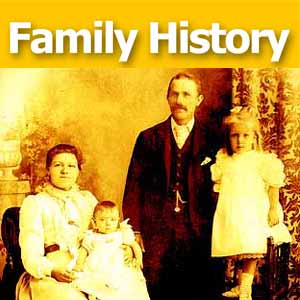
Free, step-by-step podcast for beginners and a “refresher” course: Family History: Genealogy Made Easy
Genealogy Gems Premium podcast
SHAPING UP WITH SUNNY MORTON
Family Tree Magazine Podcast celebrates 100th episode

Sunny Morton has get-in-shape advice for us from strengthening research skills to toning tech muscles–from the article “Shaping Up” featured in the March 2010 issue of Family Tree Magazine.
More resources for genealogy education:
- Genealogy Gems Premium eLearning membership
- Family Tree University
- National Genealogical Society Educational Courses
- Boston University Programs in Genealogical Research
- Southern California Genealogical Society Jamboree annual conference
GENEALOGY GEMS BOOK CLUB: Everyone Brave is Forgiven, the best-selling novel by British author Chris Cleave. A love story set in World War II London and Malta. This story is intense, eye-opening and full of insights into the human experience of living and loving in a war zone?and afterward. Everyone Brave is Forgiven is inspired by love letters exchanged between the author’s grandparents during World War II.
Video: Chris Cleave on the U.S troops coming to Europe in World War II
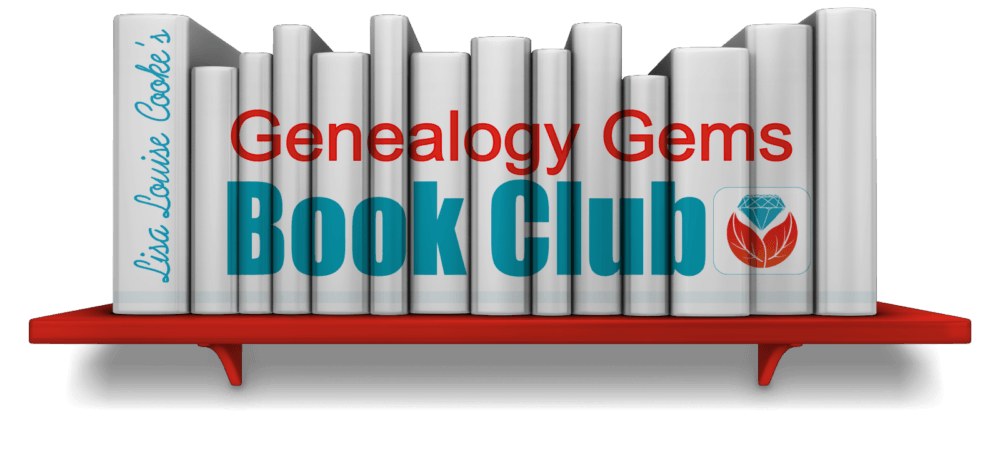
Click here for more Genealogy Gems Book Club titles

 MyHeritage.com is the place to make connections with relatives overseas, particularly with those who may still live in your ancestral homeland. Click here to see what MyHeritage can do for you: it’s free to get started.
MyHeritage.com is the place to make connections with relatives overseas, particularly with those who may still live in your ancestral homeland. Click here to see what MyHeritage can do for you: it’s free to get started.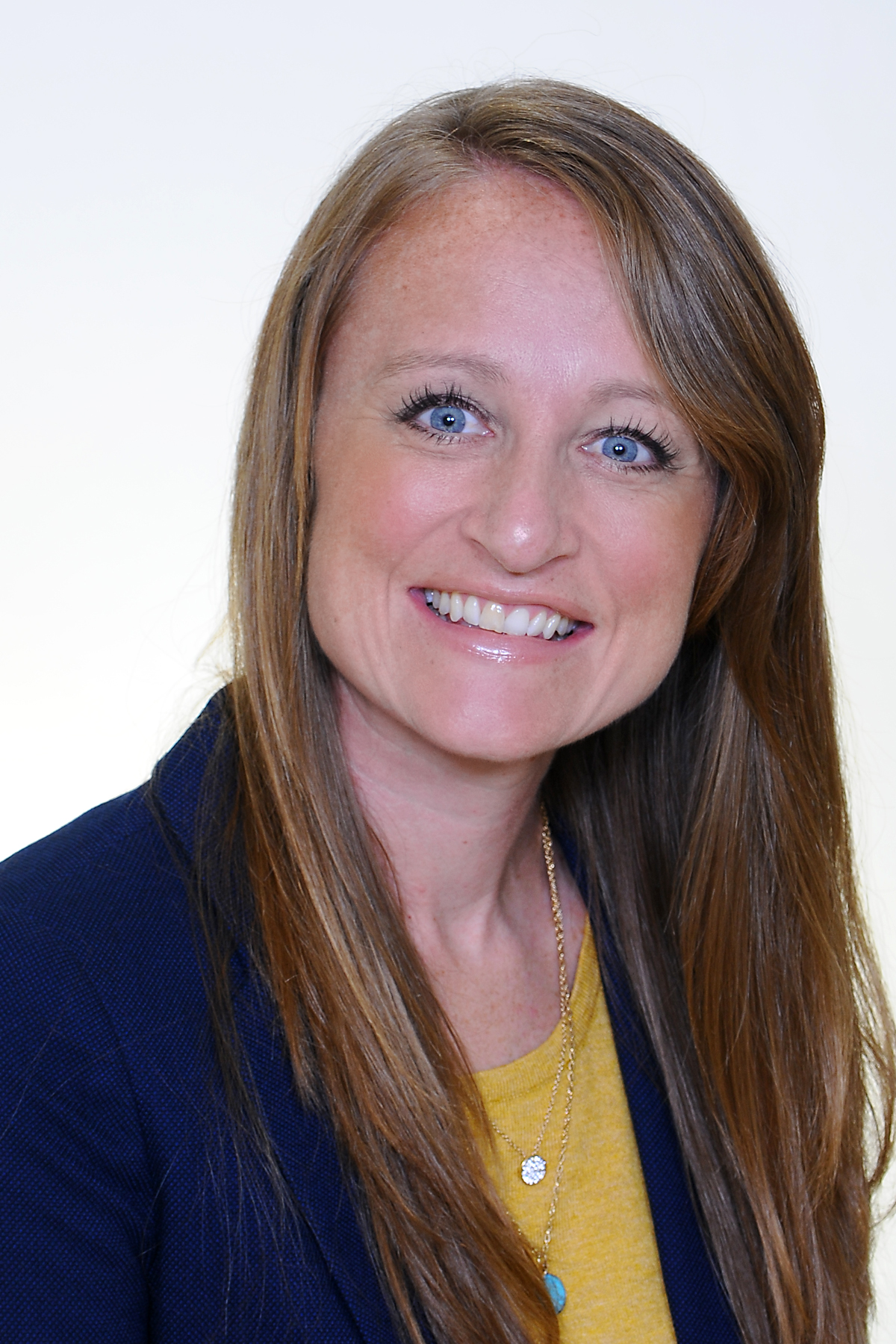 The genetic genealogy community has a crush. A big one. Everyone is talking about it. “It has such great features.” says one. “It has a chromosome browser!” exclaims another. “It’s FREE!” they all shout. What are they talking about? GEDmatch. GEDmatch is a mostly free online tool where anyone with autosomal DNA test results from 23andMe, FTDNA, and AncestryDNA can meet and share information. All you need to do is download your data from your testing company and upload it into your newly created GEDmatch account.GEDmatch is set up just like your testing company in that it provides two kinds of reports: ethnicity results, and a match list. Remember that ethnicity results, meaning those pie charts that report you are 15% Italian and 32% Irish, are based on two factors: a reference population and fancy math. GEDmatch has gathered data from multiple academic sources to provide you with several different iterations of ethnicity reports. This is like getting a second (and third and fourth, etc) opinion on a science that is still emerging. It is a fun exercise, but will likely not impact your genealogy research very much. The more important match list does allow you to see genetic cousins who have tested at other companies. Of course, only those who have downloaded their results and entered them into GEDmatch will show up on your list. This means GEDmatch has the potential to expand your pool of genetic cousins, increasing your chances of finding someone to help you track down that missing ancestor. Many also flock to GEDmatch because they were tested at AncestryDNA and thus do not have access to a chromosome browser. A chromosome browser allows you to visualize the physical locations that you share with someone else. Some find this to be a helpful tool when analyzing their DNA matches (though in my opinion, it is not essential).GEDmatch also has some great genealogy features that let you analyze your pedigree against someone else’s, as well as the ability to search all the pedigree charts in their system so you can look specifically for a descendant of a particular relative.However, even with all of these great features, GEDmatch is still yet another website you have to navigate, and with that will be a learning curve, and certainly some frustration. So, is it worth it? If you are fairly comfortable with the website where you were tested, and you are feeling both curious and patient, I say go for it.It’s too much to try to tell you right this minute how to download your data from your testing site and upload it to GEDmatch. BUT you’re in luck, I’ve put step-by-step instructions for getting started in a FREE tutorial on my website at www.yourDNAguide.com/transferring.
The genetic genealogy community has a crush. A big one. Everyone is talking about it. “It has such great features.” says one. “It has a chromosome browser!” exclaims another. “It’s FREE!” they all shout. What are they talking about? GEDmatch. GEDmatch is a mostly free online tool where anyone with autosomal DNA test results from 23andMe, FTDNA, and AncestryDNA can meet and share information. All you need to do is download your data from your testing company and upload it into your newly created GEDmatch account.GEDmatch is set up just like your testing company in that it provides two kinds of reports: ethnicity results, and a match list. Remember that ethnicity results, meaning those pie charts that report you are 15% Italian and 32% Irish, are based on two factors: a reference population and fancy math. GEDmatch has gathered data from multiple academic sources to provide you with several different iterations of ethnicity reports. This is like getting a second (and third and fourth, etc) opinion on a science that is still emerging. It is a fun exercise, but will likely not impact your genealogy research very much. The more important match list does allow you to see genetic cousins who have tested at other companies. Of course, only those who have downloaded their results and entered them into GEDmatch will show up on your list. This means GEDmatch has the potential to expand your pool of genetic cousins, increasing your chances of finding someone to help you track down that missing ancestor. Many also flock to GEDmatch because they were tested at AncestryDNA and thus do not have access to a chromosome browser. A chromosome browser allows you to visualize the physical locations that you share with someone else. Some find this to be a helpful tool when analyzing their DNA matches (though in my opinion, it is not essential).GEDmatch also has some great genealogy features that let you analyze your pedigree against someone else’s, as well as the ability to search all the pedigree charts in their system so you can look specifically for a descendant of a particular relative.However, even with all of these great features, GEDmatch is still yet another website you have to navigate, and with that will be a learning curve, and certainly some frustration. So, is it worth it? If you are fairly comfortable with the website where you were tested, and you are feeling both curious and patient, I say go for it.It’s too much to try to tell you right this minute how to download your data from your testing site and upload it to GEDmatch. BUT you’re in luck, I’ve put step-by-step instructions for getting started in a FREE tutorial on my website at www.yourDNAguide.com/transferring.
Genealogy Gems Podcast turns 200: Tell me what you think?
As we count down to the 200th episode of the free Genealogy Gems Podcast, what have been YOUR favorite things about the podcast? Any particular topics, interviews or segments of the show? What keeps you coming back? What would you like to hear more of? Email me at genealogygemspodcast@gmail.com, or leave a voicemail at (925) 272-4021, or send mail to: P.O. Box 531, Rhome, TX 76078.
FREE NEWSLETTER:
Disclosure: This article contains affiliate links and Genealogy Gems will be compensated if you make a purchase after clicking on these links (at no additional cost to you). Thank you for supporting Genealogy Gems!

